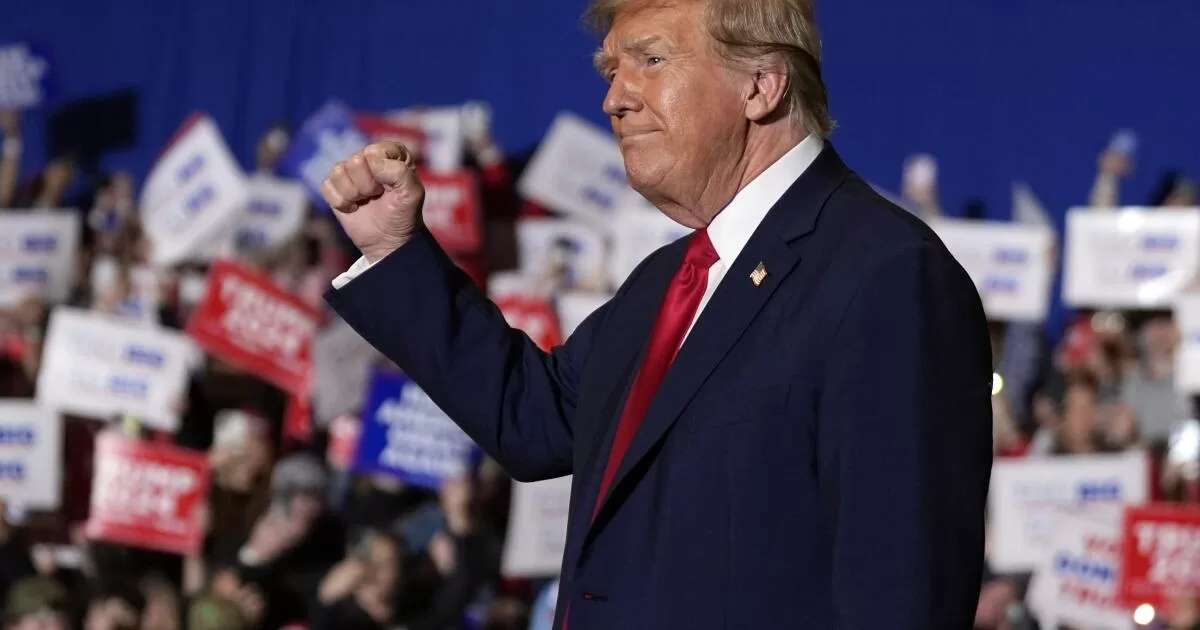Reversing a ruling by Colorado judges, the high court said states do not have the authority to interpret the post-Civil War 14th Amendment or use it to remove from the state ballot a presidential candidate.
It was an unsigned, unanimous decision.
In December, the Colorado Supreme Court decided that Trump was disqualified from running for president because he violated Section 3 of the 14th Amendment. It says no person may “hold any office, civil or military” who took an oath to support the Constitution and then engaged in “insurrection or rebellion” against the United States.
Legal scholars and historians told the court in friend-of-the-court briefs that the Reconstruction Congress sought to prevent “insurrectionists” from gaining power and subverting American democracy.
The justices did not dispute that reading of history, but they appeared more concerned about allowing state judges to remove from the ballot a candidate who is the overwhelming choice of Republican voters.
“Because the Constitution makes Congress, rather than the states, responsible for enforcing Section 3 against federal officeholders and candidates, we reverse,’’ Monday’s ruling stated.
All nine justices said they agreed that Colorado or any state may not disqualify a presidential candidate based on the 14th Amendment.
But Justices Sonia Sotomayor, Elena Kagan, Ketanji Brown Jackson and Amy Coney Barrett objected to part of the court’s opinion that said Congress must enact a law to enforce this provision in the 14th Amendment.
“Today, the majority goes beyond the necessities of this case to limit how Section 3 can bar an oath-breaking insurrectionist from becoming president. Although we agree that Colorado cannot enforce Section 3, we protest the majority’s effort to use this case to define the limits of federal enforcement of that provision. Because we would decide only the issue before us, we concur only in the judgment,” the court’s three liberals wrote.
Barrett filed a similar concurrence.
“I agree that states lack the power to enforce Section 3 against presidential candidates. That principle is sufficient to resolve this case, and I would decide no more than that. … In my judgment, this is not the time to amplify disagreement with stridency. The court has settled a politically charged issue in the volatile season of a presidential election. Particularly in this circumstance, writings on the court should turn the national temperature down, not up. For present purposes, our differences are far less important than our unanimity: All nine Justices agree on the outcome of this case. That is the message Americans should take home. “
The court moved with uncommon speed to hear Trump’s appeal and to rule for him. His lawyers asked the court to review the Colorado case Jan. 3. Two days later, the appeal was granted, and arguments were held Feb. 8.
The justices ruled for Trump in less than a month and in time for his votes to be counted in Colorado’s primary election on Tuesday.
The court has moved less quickly to resolve Trump’s separate claim of presidential immunity from prosecution. As a result, the criminal trial over his role on Jan. 6 may not be held until after the November election.
Last week, the court announced it would hear Trump’s immunity claim, setting arguments for the week of April 22. Under that schedule, the justices are not likely to rule before June.
By then, it may be too late for the trial to be held before the November election.
